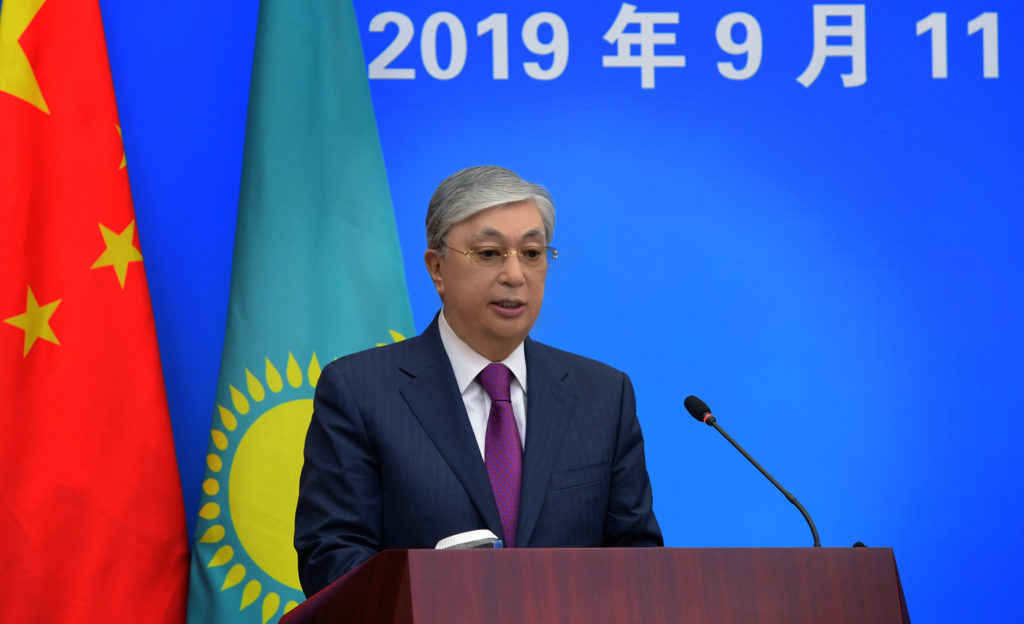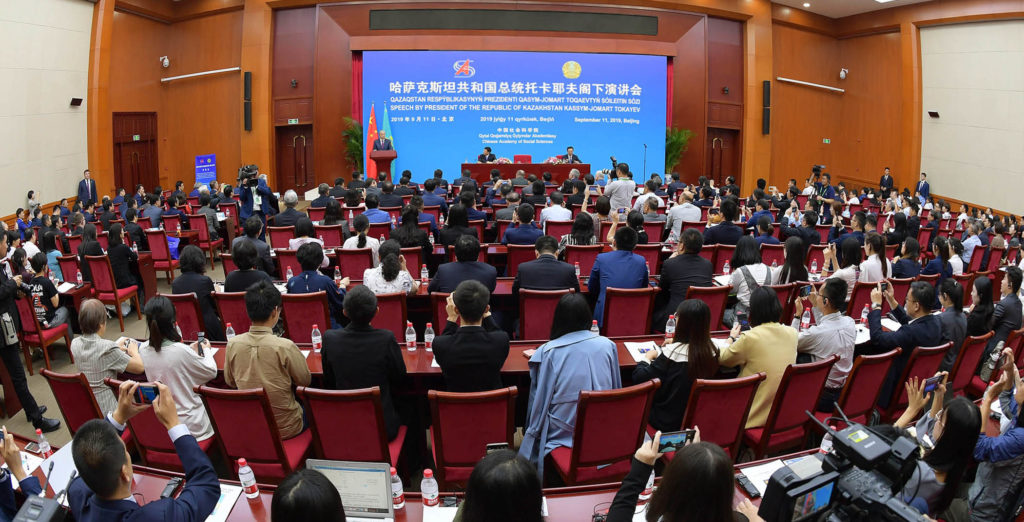NUR-SULTAN – As the role of international law and global institutions in maintaining peace and security diminish, Kazakhstan’s history of peace and denuclearisation can serve as a valuable model, Kazakh President Kassym-Jomart Tokayev told the Sept. 11 gathering of the Chinese Academy of Social Sciences in Beijing.

Kassym-Jomart Tokayev delivers a lecture at the Chinese Academy of Social Sciences in Beijing on Sept. 11. Photo credit: akorda.kz.
“Our country has developed the Code of Conduct towards Achieving a World Free of Terrorism, a unique document. Kazakhstan has also contributed to the conclusion of the Joint Comprehensive Plan of Action (JCPOA) by providing a platform for negotiations in 2013. We remain committed to facilitating the search for compromise. As a country that has renounced the world’s fourth largest nuclear arsenal, we are ready to share our experience,” he said.

Kassym-Jomart Tokayev delivers a lecture at the Chinese Academy of Social Sciences in Beijing on Sept. 11.
Tokayev’s address was dedicated to the analysis of modern international relations. Today’s geopolitical challenges, he said, include tensions between countries, the breakdown of previous mechanisms of security and arms control and the expansion of conflicts.
“Unfortunately, we see a number of critical circumstances that exacerbate existing complex international dialogue,” said Tokayev, adding that the transition of geopolitical competition to economic competition could increase the imbalance in the global economy and inequality between states.
Conflicts in many parts of the world also present serious risks. The predominance of power approaches in defending a country’s interests increases the risk of military clashes.
According to Tokayev, the current global confrontation seems to be more dangerous than the period of bipolar rivalry. Earlier, it was a fight between two political systems and ideological systems. Now the confrontation is growing in terms of national and strategic interests of powerful countries.
Tokayev said it is necessary to join efforts to address global issues and noted that the role of the United Nations (UN) as a universal organisation is vital.
“We believe that UN reform should increase its effectiveness and credibility. As the non-permanent member of the UN Security Council, Kazakhstan called for a so-called ‘reset’ of relations in the security sphere. I believe China is able to have a constructive impact on strengthening the importance of the UN. As a permanent member of the UN Security Council, China plays an important role in this organisation,” he said.
The President noted that Kazakhstan and China as neighbouring countries and strategic partners should move towards progress and prosperity. Tokayev said he would like to see more cooperation between think tanks and an expansion of joint conferences and research.
Tokayev also expressed congratulations for China’s 70th anniversary as People’s Republic, to be celebrated Oct. 1. The history of Kazakhstan and China has “much in common,” he said. Two nations are brought together by the spirit of development and the desire for progress.
“Forty years ago, the leadership and people of China embarked on a wise and wide-ranging transformation. Thanks to these reforms, China occupies the leading position in the world. Over 30 years, Kazakhstan has also passed through a difficult but impressive period from a deep systemic crisis to sustainable growth,” he said.
The Chinese Academy of Social Sciences is of national importance for China. The academy’s centres and institutes, he noted, contribute to global scientific research. The ideas and suggestions of experts “will contribute to strengthening our mutually beneficial cooperation,” said the Kazakh leader.
